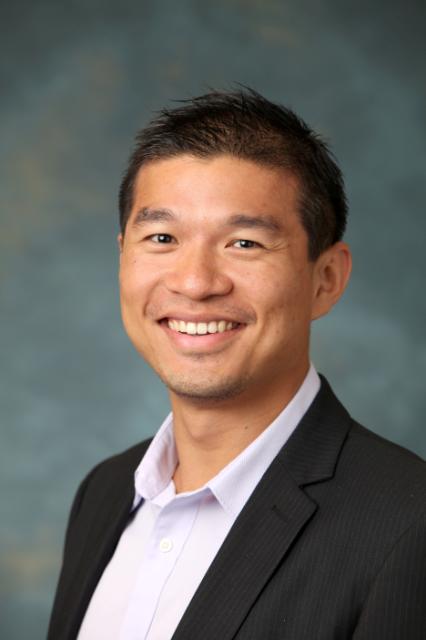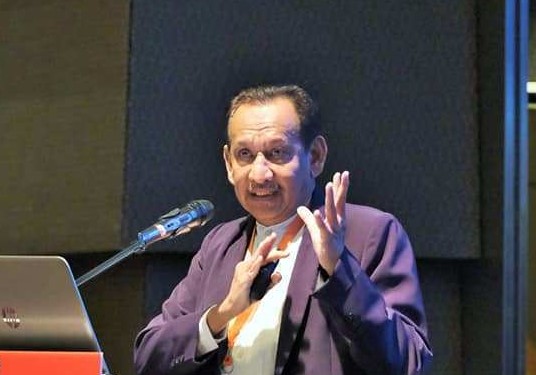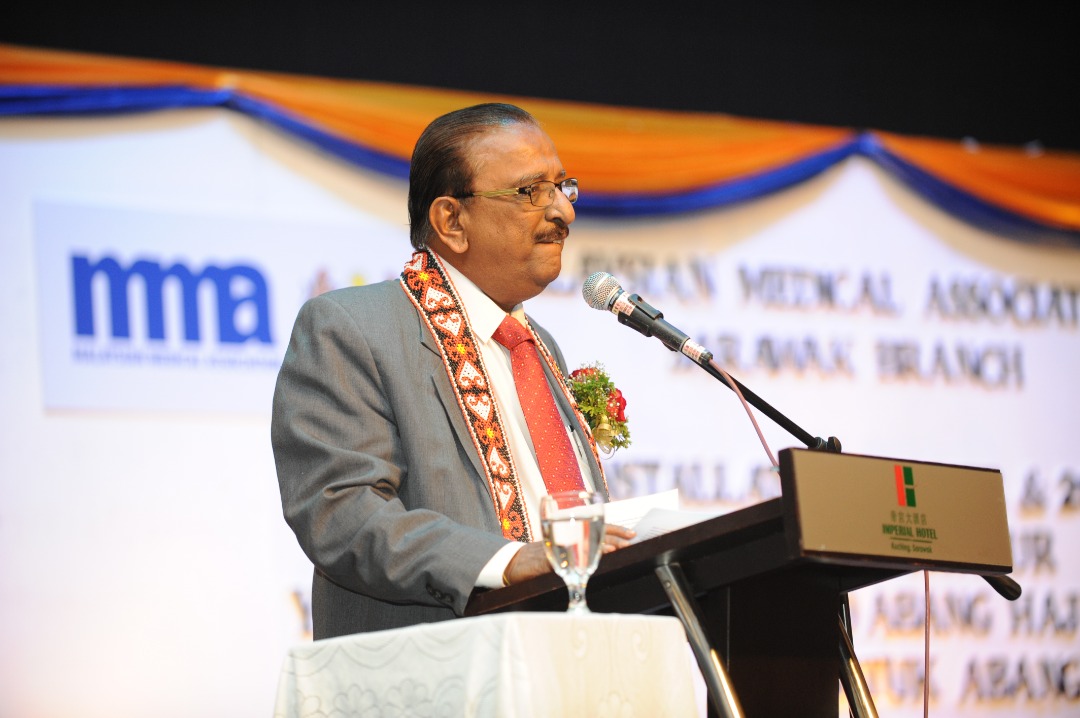KUALA LUMPUR, August 30 — Physicians and pharmacists urged the government to introduce national health insurance to boost Malaysia’s increasingly unsustainable health care system, as Malaysia celebrates her 62nd year of independence tomorrow on Merdeka.
The previous Barisan Nasional administration had tried, but failed to replace Malaysia’s tax-financed health system with social health insurance due to massive public pushback.
Other advocates demanded more attention on aged care beyond medicine as Malaysia is becoming an ageing population, as well as a multi-year plan to reform the health care system instead of solely focusing on annual government budgets that tend to be populist.
Here is what health care stakeholders polled by CodeBlue want in conjunction with Merdeka:
Dr N. Ganabaskaran
Malaysian Medical Association (MMA) president
What health policies should the government focus on as we reach our 62nd year of independence?
The number one priority and focus should be on the sustainability of our health care system’s financing. We are concerned that the current model will not be able to sustain for much longer. A compulsory national health insurance must be something to be urgently looked into by the government to address this issue. More engagement with all stakeholders is needed on this.
Malaysians enjoy the high quality of health care at lower cost at government hospitals. However, many, especially among the B40 group, aren’t able to afford care to treat more serious illnesses.
Dr N. Ganabaskaran, Malaysian Medical Association (MMA) president
Even the middle to high income group can be vulnerable if they lose employment. Only 20 to 30 per cent of our population buy health insurance and this is worrying as even then, many from this group are under-insured.
We also look forward to more of the preventive health policies. MMA fully supports the smoking ban in restaurants and eateries as well as the sugar tax introduced by the government to address the rising cases of cancer, diabetes and obesity. More of such initiatives will help instill the importance of adopting a healthy lifestyle among Malaysians. Efforts must also be made to instill healthy habits among our younger generation.
It is also hoped that more efforts will be made to increase the number of government hospitals in the country. We have a high number of medical graduates but there aren’t enough positions in our government hospitals. About 3,000 medical officers will be completing their compulsory service in December 2020. We also hope that efforts also be made to keep specialists serving in government health care facilities by looking into better remuneration.
MMA also hopes that the harmonisation of clinic GP fees’ schedule will be finally be approved by the Cabinet. We hope there will be positive news on this issue in the near future.
Malaysia will also be reaching ageing nation status in 2030 where 15 per cent of our population will be 60 years or older. We hope this area will be given increased attention. The needs in elderly care will increase over the next five to 10 years.
Our health care system must be well prepared for this change in our country’s demographics. Currently, there is an acute shortage in geriatricians, geriatric nurses and occupational therapists in the country. There will be an increase in demand for specialised care for our older citizens in the not too distant future.
MMA is also particularly concerned about the health of our teens. Many lack exercise, sleep and proper nutrition. Issues such as digital or gaming addiction, mental illnesses and even suicide are on the rise. While some of the areas may not directly fall under the Health Ministry’s purview, efforts can be made to work with other ministries to address these issues.
What do you think the government can do better in terms of health care?
We feel much of the congestion at government hospitals can be better managed if the government clinics adopt a two-shift system. This would improve the service and attract patients who would otherwise go to the ETD (emergency and trauma department) to seek treatment. This will also help address issues of burnout among doctors and nurses.
Mega projects and highways are being developed, but no new government hospitals are being built. There are patients who have to travel to bigger cities for treatment of cancer and other serious illnesses.
New hospitals will help ease congestion at our government health care facilities and help create jobs and placements for our medical graduates. The government’s aim is to bring the doctor patient ratio to 1:400 in the next few years and for that, we need about 85,000 doctors. Right now we have about 55,000 doctors.
What kind of health allocations are you hoping for in the upcoming Budget 2020?
We are seeing an increase in patients, but there has not been an increase in the number of government hospitals and there is a shortage of beds. We hope to see allocations for this area. The situation may get worse when Malaysia becomes an ageing nation in 2030 where there will be an increase in the healthcare needs of our elderly citizens. Elderly care should also be an area of focus for Budget 2020.
We are pleased with efforts by the Health Ministry in promoting preventive care. We hope to see an increase in budgets for this area as in the long run, it will help reduce expenditure on curative care and the high cost of treatments in treating serious illnesses.
Overall, we are hopeful for the gradual increase in our health care budget as our nation’s economy recovers. We believe a national health insurance scheme will be the way forward in addressing issues in the sustainability of our nation’s healthcare. This must be urgently looked into by the government.

Dr Khor Swee Kheng
Physician and specialist in health systems and policy
What health policies should the government focus on as we reach our 62nd year of independence?
The health system that got Malaysia here, won’t get Malaysia through the next 62 years. Reform is needed, but gargantuan health systems cannot change overnight and magically.
Therefore, there should be a long-term plan and a basket-of-solutions for three elements: enhancing primary care, finding new sources of funds especially for health protection and promotion, and restructuring the Health Ministry (and vis-à-vis the private sector) to introduce adequate governance, autonomy and competition.
What do you think the government can do better in terms of health care?
The Health Ministry is one of the more successful Ministries, due to the highly-trained and highly-scientific nature of the work of technocrats and civil servants. Primary care, new sources of funds and a restructured ministry are the obvious opportunities (and discussed previously).
Others include increased efficiency (for example, pooled procurement), gradually introducing performance measurements (for example, tying Sasaran Kerja Tahunan to clinical outcomes), and eliminating corruption, waste, fraud and abuse. Finally, there is a need for Health in All Policies, so that the Health Ministry is not working in a silo.
What kind of health allocations are you hoping for in the upcoming Budget 2020?
An obvious choice is more top-line funds to the Health Ministry, but this must be responsible and realistic. I’ve previously proposed such a mechanism for MOH (Ministry of Health) allocations, with specific suggestions for allocations. There is an additional element to consider.
As Budget cycles are annual, there is a tendency to play to the gallery and be short-term and populist.
Dr Khor Swee Kheng, physician
This tendency must be resisted, in favour of a multi-year and patient plan to reform the health system. Therefore, any Budget 2020 allocations must have one eye on the future.

Amrahi Buang
Malaysian Pharmaceutical Society (MPS) president
What health policies should the government focus on as we reach our 62nd year of independence?
1) The government should give more recognition to the pharmacy profession being part and a major stakeholder in the healthcare ecosystem.
2) With 15,000 practising pharmacists, they are ready to serve the rakyat and nation in both public and private sectors.
3) Pharmacists must be an integral part of the health reform mentioned recently by the Honorable Health Minister.
4) The integration of the health care system will enable the rakyat to access both the public and private sectors.
5) To initiate the national health care insurance scheme to achieve universal health care coverage.
What do you think the government can do better in terms of health care?
1) Focus on promotive care and preventive care rather than curative, rehabilitative and palliative care.
2) Extending the anti-tobacco and lifestyle promotion programmes.
3) With related to NCDs (non-communicable diseases), promotion of less sugar and less salt usage for consumers is vital.
4) Addressing the issue of high cost medicines in all channels since the current pharmaceutical market is not a free market as it is controlled by dominant players.
5) Taking appropriate actions for the country to achieve universal health care coverage.
6) Extending the Public-Private Partnership (PPP) initiatives and programmes for better balance in the current health care system.
What kind of health allocations are you hoping for in the upcoming Budget 2020?
1) Extending the Peka B40 and mySalam schemes to pharmacists for better coverage to the targeted population.
2) To increase the health care budget for expenditure and development projects as suggested by the World Health Organization.
3) More budget allocation to increase rakyat’s literacy on medicines use for better management of their diseases

Dr Carol Yip
Aged Care Group CEO
What health policies should the government focus on as we reach our 62nd year of independence?
Our nation is moving towards an ageing population, so aged care in particular needs special attention. This will see a rapid increase of demand of primary health care and long-term care.
It will require a larger and better trained workforce and more age-friendly environment to improve/ maintain the functional capabilities of this aged population to keep them active with an acceptable quality of life and autonomous in living. Hence, it should be noted that policies regarding aged care should be addressed holistically, and not as an isolated/ singular policy by itself.
What do you think the government can do better in terms of health care?
As mentioned in Q1, more attention should be given to aged care.
As aged care encompasses not only medical aspects, but also financial, legal and social aspects, the government could play a more participatory role in financing and ensuring equal access to quality health services as it is an important indicator of a balanced society.
Dr Carol Yip, Aged Care Group CEO
Government’s role is to ensure that Malaysia’s elderly gain utilisation of products and services that are dependent on the affordability, physical accessibility and acceptability of products as well as services — not merely adequacy of supply.
What kind of health allocations are you hoping for in the upcoming Budget 2020?
Health care expenditure will continue to rise as we are ageing and aligned to that we hope to see allocations, or considerations at the very least, to be made regarding the issue of long-term care. As we live longer, the possibility of needing long-term care becomes very real.
Considerations are usually made in regards to medical aspects of health care, but long-term care – the care a person requires that are non-medical, but nonetheless essential to their recovery or ability to cope with debilitative conditions on a daily basis – is often an issue not addressed.
Long-term care by enhancing capacity for care through training and education to heighten awareness to plan ahead for it among Malaysians, is an integral aspect in aged care which we hope to see more of its application in the Budget 2020.








